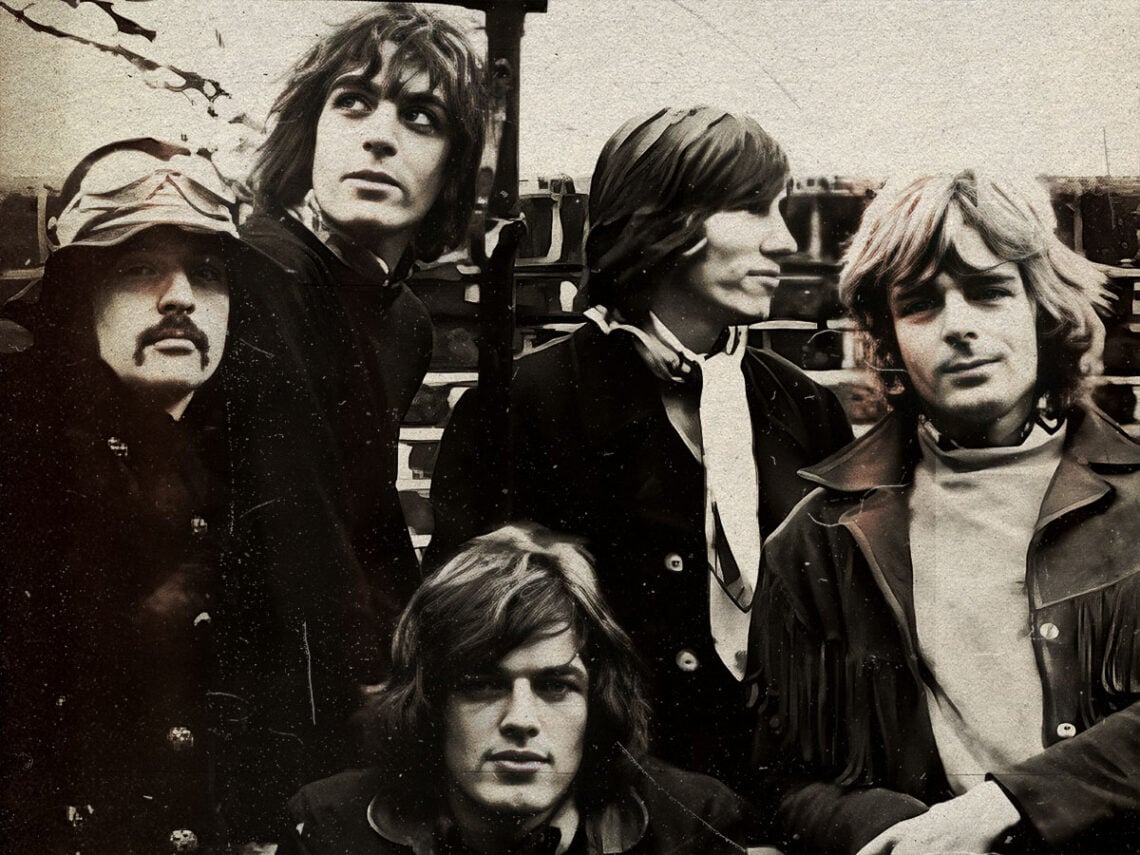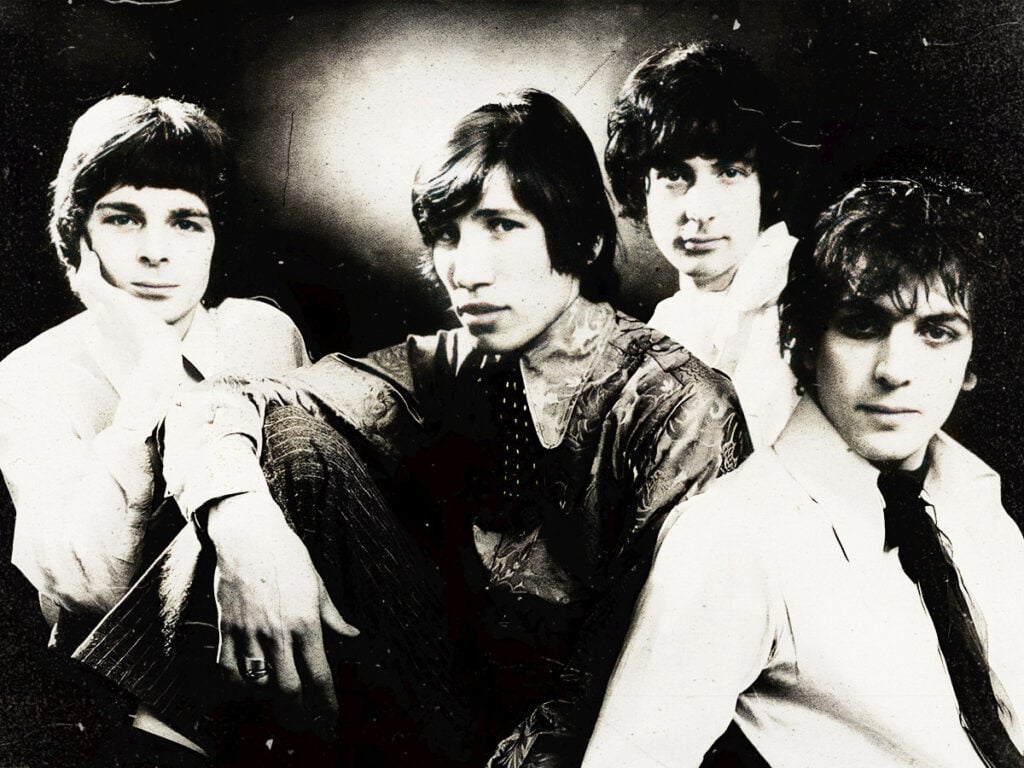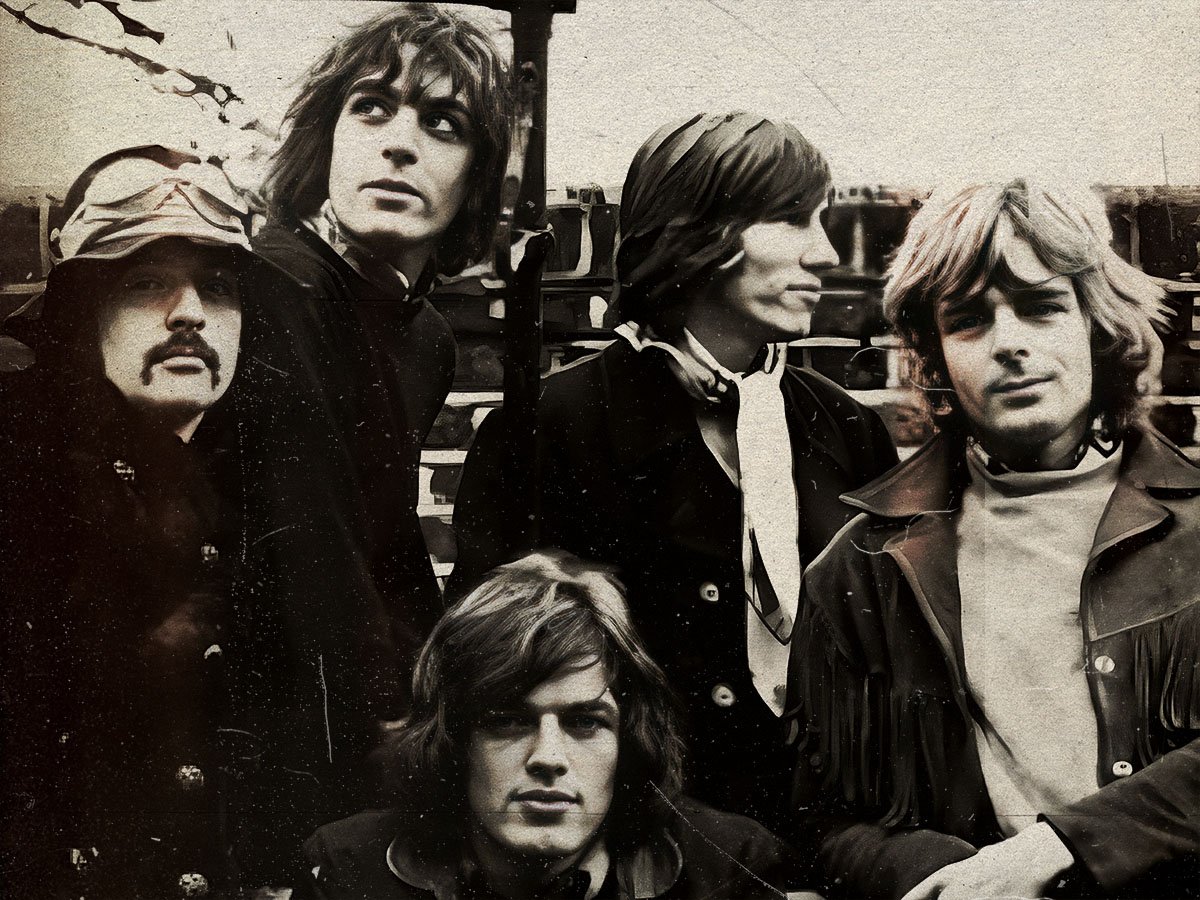
(Credits: Far Out / Pink Floyd)
Thu 23 October 2025 16:16, UK
After a formative baptism in rhythm and blues in the London circuit responsible for The Rolling Stones and Fleetwood Mac, Pink Floyd traversed into psychedelic territory. They were riding a wave of acid rock that was sweeping London, and through their earliest performances soon crowned themselves the princes of the scene.
The band prospered with the release of The Piper at the Gates of Dawn in 1967. The record was riddled with twisted metaphors and truly surreal lyricism, thanks in no small part to the group’s creative leader, Syd Barrett. But stormy seas lay ahead with bandleader Barrett’s increasingly unstable state amid heavy drug use and a related mental health decline.
Barrett was ultimately phased out of Pink Floyd in 1968, with his last contributions appearing in the comparatively underwhelming follow-up album A Saucerful of Secrets. With Barrett’s childhood friend and guitar whiz David Gilmour in the squad, Pink Floyd entered a transitional chapter as bassist Roger Waters stepped up to the plate as creative lead.
This period, extending from 1968 to the early-1970s masterpieces Meddle and The Dark Side of the Moon, was essential to Pink Floyd’s development but wasn’t home to their finest work. The film soundtrack for More, the studio/live hybrid Ummagumma and the bizarre bovine Atom Heart Mother each had their moments, but none could be described as consistent or excellent.
Pink Floyd commenced its most profitable decade with Atom Heart Mother, an album that preceded masterworks like ‘Echoes’, The Dark Side of the Moon, and Wish You Were Here, and yet the band considered it a sign of ideas running dangerously thin. In my opinion, ‘Fat Old Sun’ and ‘Summer ’68’ reserve the LP a spot on the record shelf, but admittedly, the side one suite, ‘Atom Heart Mother’, is a long slog that doesn’t reward the patience required.
 Richard Wright, Roger Waters, Nick Mason and Syd Barrett of Pink Floyd. (Credits: Far Out / Alamy)
Richard Wright, Roger Waters, Nick Mason and Syd Barrett of Pink Floyd. (Credits: Far Out / Alamy)
The 23-minute suite was a group songwriting effort consisting of six chapters of meandering prog-rock exploration. Like many of Pink Floyd’s protracted recordings from this period, it arose from a lengthy Abbey Road studio jam. Waters and Gilmour were aware of its shortcomings, but with options scarce and an album to fill, it was passable fodder at the time.
Over time, however, the band reached heady summits, from which the jam looked veritably sour. The truth about Pink Floyd, as we look back at their career, is that they seem to be defined by two things. Firstly, they had an uncanny ability to create transcendent soundscapes that seemed to defy rock ‘n’ roll conventions and feel both magnetic and ethereal at the same time. They would draw in crowds but remain elusive to complete understanding. The other factor was that the group rarely agreed on much.
The feud at the centre of the group, with positions held by David Gilmour and Roger Waters to this day, has become such a noted part of their make-up that it’s impressive anything ever got done. But the truth is, especially during the early days, they aligned for the greater good of the group. But there was another thing that seemed to bring Gilmour and Waters together: bashing old Pink Floyd songs, and ‘Atom Heart Mother’ is one such suite that has taken a routine bashing from every member of the band.
As far as Gilmour was concerned, ‘Atom Heart Mother’ was “a load of rubbish”. Speaking to the BBC in the 1980s, he added, “We were at a real down point. We didn’t know what on earth we were doing or trying to do at that time, none of us. We were really out there. I think we were scraping the barrel a bit at that period.”
Similarly, Roger Waters saw the album, and its Side One epic in particular, as an unfortunate stench on an otherwise pristine Pink Floyd oeuvre. Supplying his retrospective thoughts on the LP, he didn’t hold back, stating that he would be perfectly happy to see it “thrown into the dustbin” never to be listened to by “anyone ever again.”
Meanwhile, Nick Mason finds the track difficult to listen to, not because of its tortuous length but because of his and Waters’ inconsistent rhythm section. Audaciously, the pair recorded the entire rhythm track in an extended take. “I listen to it with acute embarrassment,” he admitted, adding, “The tempo goes up and down. It was a 20-minute piece, and we just staggered through it.”
The late keyboard player Richard Wright was less scathing in his 1995 assessment of Pink Floyd’s late-’60s transitional period. “At the time, I thought we were making the most incredible music in the world, but looking back, it wasn’t so good,” he told Mojo. “Now we have become a lot more professional, and we don’t take risks like we used to.”
To many fans, ‘Atom Heart Mother’ remains an important milestone in Pink Floyd’s history, but understandably, very few have it on constant rotation. If you have half an hour to spare, give the track a listen below.
Related Topics
